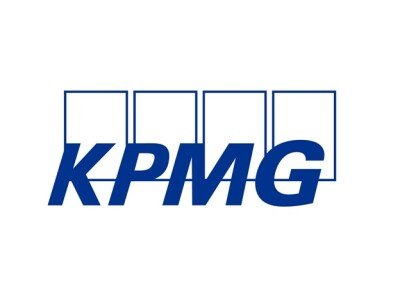The report, titled “Unleashing Legacy – A Path to Growth Excellence in Family Businesses,” surveyed 2,683 family business CEOs across 80 countries, regions and territories to explore the nature of legacy in today’s world and how family businesses can leverage legacy for sustainable competitive growth into the future.From its findings, the report examined the components of legacy, including material, biological, social, identity and entrepreneurial.
Carmen Yan, National Head of KPMG Private Enterprise, KPMG China“Finding a way for tradition and innovation to coexist is one of the most common challenges in building a lasting legacy in family businesses. Although legacy is often viewed from a historical perspective, it must be recognized that it is also an important foundation for the future as it positively impacts business performance and the family business’s impact on the environment, society, employees and sustainability of suppliers.”
Forty-three percent of respondents reported a combination of high business, environmental and social performance and a strong legacy. This confirms the strong connection between legacy and intergenerational entrepreneurship guiding family businesses’ strategic decisions and the impact they have on long-term business performance and sustainability. Among family businesses with the highest intergenerational entrepreneurship scores, 49 percent also have the highest business performance scores and 60 percent have the highest sustainability scores.
In China, 75% of family businesses are still run by the first generation. First and second generation businesses had the highest material legacy scores, but scores tend to decline as more family generations are involved in the business. This could reflect a dilution of wealth, or a shift in focus from tangible assets to intangible values, as families become larger and more complex.
In Asia, a region with many emerging economies, wealth is traditionally seen as a family inheritance. Compared to other regions, Asia-Oceania scores highest on intergenerational entrepreneurship. The region has a relatively young business age, which is consistent with the rapid economic development and entrepreneurial growth seen in many parts of the region, and where a “keep ownership and management within the family” philosophy is commonly adopted.
Peter Li, Partner, Family Advisory and Private Enterprise Practice, KPMG China“As younger generations enter the family business, some family businesses are shifting their focus from the past to the future. It’s important to recognize that the business can embrace change without losing sight of the foundation it was built on,” he says.
According to KPMG data, legacies are often strengthened by the intergenerational entrepreneurial spirit of younger generations, who speak up to their predecessors about what is important to them and encourage them to strengthen the business legacy. Younger family members are often actively involved in the business as potential successors.
Interestingly, CEO tenure is a significant contributing factor to the focus on biological heritage: in China, biological heritage (23%) is one of the most important elements embedded in family businesses. Those with longer leadership tenure tend to foster a richer biological heritage, suggesting a potential link between longer leadership tenure and fostering family continuity.
However, biological heritage scores are notably lower for female family business CEOs compared to male CEOs, suggesting that they may prioritize other elements of heritage, such as corporate social responsibility and innovation. Notably, survey data indicates that the positive impact of heritage on sustainability is stronger for family businesses led by female CEOs than male CEOs. Some female leaders value community success over personal or biological heritage, focusing on employee well-being, community engagement and environmental sustainability as part of their legacy. Among the regions featured in the report, China has the highest proportion of female CEOs in family businesses.
Hashtag: #KPMG
The issuer is solely responsible for the content of this announcement.
About KPMG China
KPMG China has more than 14,000 partners and staff across offices in 31 cities, including Beijing, Changchun, Changsha, Chengdu, Chongqing, Dalian, Dongguan, Foshan, Fuzhou, Guangzhou, Haikou, Hangzhou, Hefei, Jinan, Nanjing, Nantong, Ningbo, Qingdao, Shanghai, Shenyang, Shenzhen, Suzhou, Taiyuan, Tianjin, Wuhan, Wuxi, Xiamen, Xi’an, Zhengzhou, Hong Kong SAR and Macau SAR. Working collaboratively across all these offices, KPMG China can efficiently deploy experienced professionals wherever our clients are located.
KPMG is a global organization of independent professional services firms providing audit, tax and advisory services. KPMG is the brand under which member firms of KPMG International Limited (“KPMG International”) operate and deliver professional services. “KPMG” is used to refer to an individual member firm within the KPMG organization or to one or more of the member firms as a whole.
KPMG operates in 143 countries and territories with more than 265,000 partners and employees working in member firms worldwide. Each KPMG firm is a separate legal entity and describes itself as such. Each KPMG member firm has its own obligations and responsibilities.
KPMG International Limited is a privately held UK company limited by guarantee. Neither KPMG International Limited nor its affiliates provide services to clients.
In 1992, KPMG became the first international accounting network to obtain a joint venture license in mainland China. It is also the first accounting network among the Big 4 in mainland China to convert from a joint venture to a special partnership as of August 1, 2012. Furthermore, the Hong Kong accounting firm’s origins date back to 1945. This early commitment to the market and unwavering commitment to quality have laid the foundation for accumulated industry experience, reflected in some of China’s most well-known companies entrusting KPMG with multidisciplinary services (including audit, tax and advisory).

